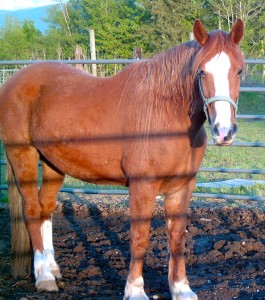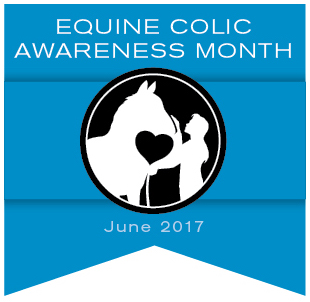On Saturday, September 20 at 8:30am, I heard the words that every horse owner fears: “Come up to the barn quick, I think Poncho is colicing.”
I hurried to the barn and found Poncho pawing at the ground and trying to lie down. Walking on the lead began in earnest, and a call was placed to our vet right away.
Poncho had coliced once prior to this, but had a full recovery without any recurring signs of colic, and that had been almost 3 and a half years ago.
Saturday through Monday came with several ups and downs. He’d seem better and then he’d seem worse again. Gut sounds were still loud, but his heart rate was normal, so we kept hoping that we were about to turn the corner. Finally on Tuesday, we tried one final treatment. When results showed no progress, Poncho told me in his own stoic way that he could not fight anymore. I made one last call to our veterinary clinic and they hurried over. At about 1:30pm on Tuesday, September 23, 2008, with the caring assistance of Dr. Dave Sauter of Kulshan Veterinarian Hospital, Poncho laid down and left us behind. He left with quiet dignity. The dignity he had always carried during his 4 years of life with us.
With my permission, a necropsy was performed so we could better understand what had gone wrong. The necropsy showed that Poncho’s cecum was completely full of sand, causing an incredibly bad sand impaction. He had also suffered a twisted bowel. Nothing we could’ve done, even surgery, would’ve saved Poncho at that point. How he had not had constant colic episodes was a mystery and a testament to how truly “Mustang Tough” our sweet Poncho was.
I adopted Poncho on May 25, 2004 at a BLM adoption auction in Lynden, WA at the age of 3. We lost him 4 years later at the age of 7 to colic. People say Mustang’s don’t colic, but that isn’t true. I miss my redheaded wild boy every day.







